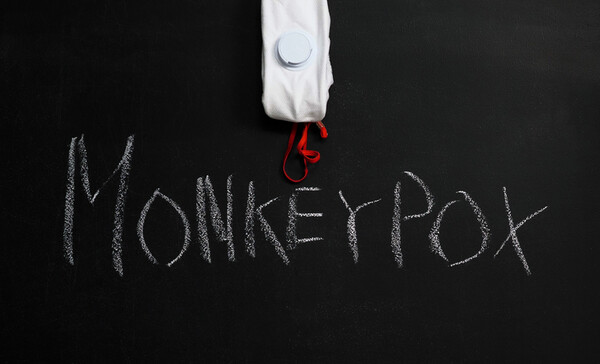The Korea Disease Control and Prevention Agency (KDCA) confirmed the ninth case of mpox, formerly known as monkeypox, on Thursday.

The patient is a South Korean residing in Gyeonggi Province and has no history of overseas travel within three weeks before the onset of symptoms.
"We assume this is a domestic infection case," the KDCA said. "We are conducting a detailed epidemiologic investigation to identify the possible source of infection."
According to the KDCA, the patient visited a medical institution on Wednesday with symptoms of skin lesions.
Suspecting that he was infected with mpox, the medical center notified the local public health center, conducted a genetic test, and confirmed that the patient was positive for mpox.
The patient is currently being treated in isolation, and the use of the drug tecovirimat is being considered.
The first case of mpox in Korea was reported in June last year. Until the fifth patient, all of the cases were from patients who had traveled abroad or related.
However, from the sixth patient, who was confirmed last Friday, health officials believe that all of the cases are local transmissions.
Mpox is an acute, febrile, rash illness caused by a viral infection. It is endemic in central and west Africa, but has spread to other parts of the world since May last year. Most cases resolve after two to four weeks, with a reported fatality rate of less than 1 percent.
Mpox is most commonly transmitted through sexual contacts, such as between men who have sex with men, and through contact with skin lesions.
As Korea continues to confirm mpox cases, epidemic prevention authorities have decided to raise the crisis alert level from "concern" to "caution" and strengthen response measures.
The government made the decision to raise the alert level based on a comprehensive review of the situation, noting that while the global outbreak of mpox is declining, the outbreak in neighboring countries such as Japan and Taiwan continues, and the frequency of domestic cases is increasing.
As the threat level has been elevated, the Central Disaster and Safety Countermeasures Headquarters will now take charge of the response measures.
However, the quarantine authorities believe there is no need to be overly fearful of the virus.
"The elevation in the threat level was based on the need to take preemptive action to contain community transmission through unidentified cases," KDCA Commissioner Jee Young-mee said. "Healthcare providers should wear protective equipment when caring for suspected patients and be proactive in patient surveillance. "
The public is also encouraged to report any suspected symptoms to their local public health centers, Jee added.
Related articles
- Korea confirms 3 new mpox cases in less than a week
- Developers of mpox diagnostic kits, vaccines receive attention as mpox spreads in Korea
- Korea confirms 10 additional mpox cases since Friday
- Korea reports 17 more mpox infections last week
- Korea's mpox caseload increases to 60
- Korea to downgrade Mpox infectious level to Class 3 while elevating calssification for syphilis

